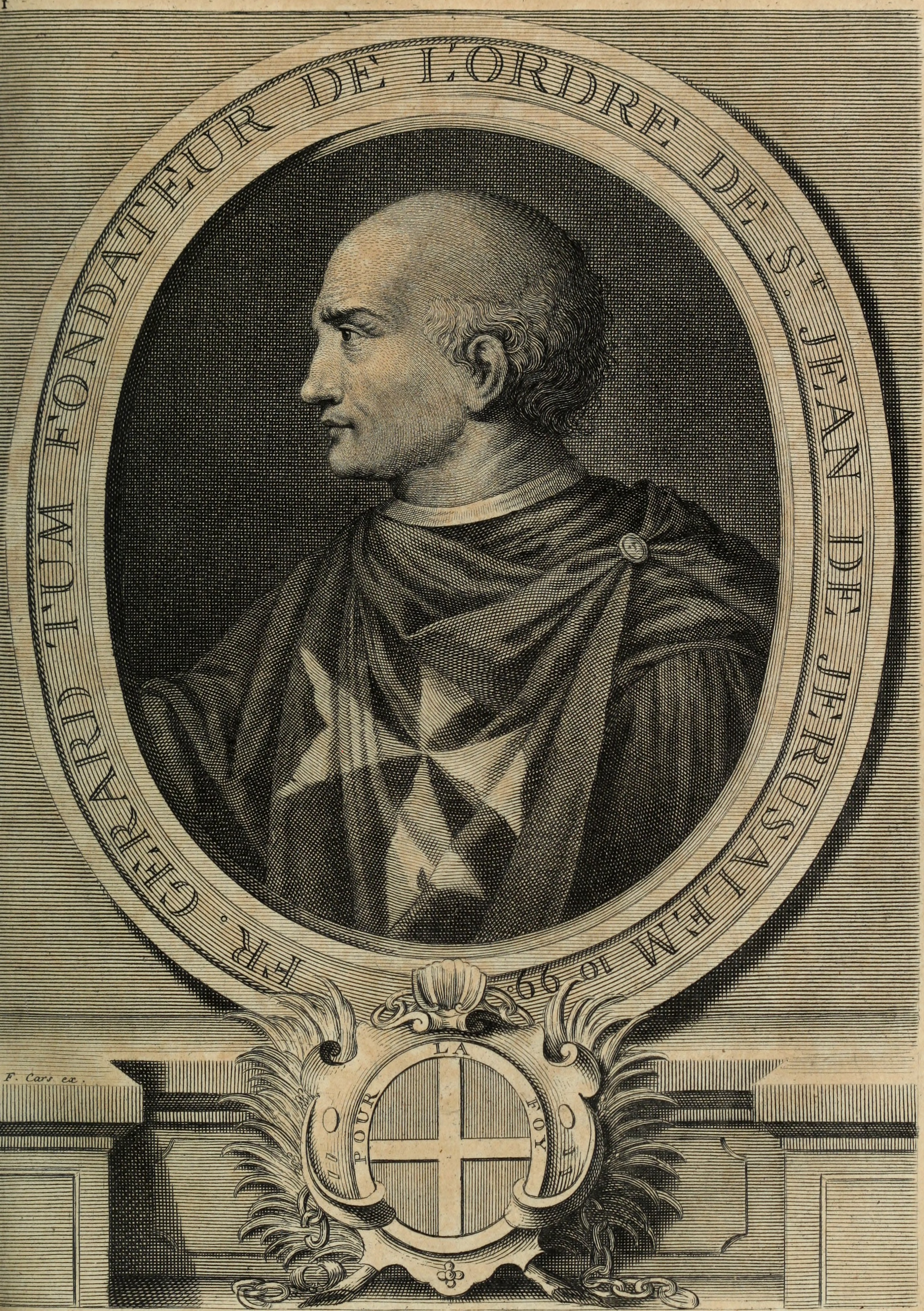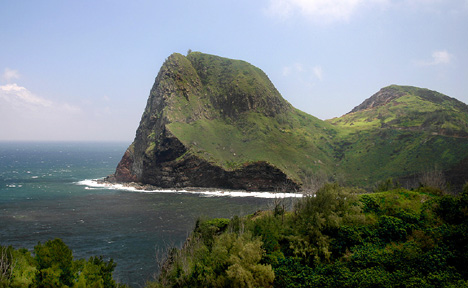|
Filippo Di Colloredo-Mels
Filippo di Colloredo-Mels (29 November 1779 in Udine – 9 October 1864 in Recanati) was, from 1845 to 1864, the leader of the Sovereign Military Order of Malta. From the Friulian noble family of the counts of Colloredo-Mels, his decision to join the Order was a sudden one – he was inscribed in it on 28 November 1779, when he was less than a year old. He made his adult profession to join it on 8 May 1840 and succeeded Carlo Candida as its lieutenant general in 1834, holding the post until his death, when he was succeeded by Alessandro Borgia (lieutenant), Alessandro Borgia. Sources * Francesco Giuseppe Terrinoni ''Memorie storiche della resa di Malta ai francesi nel 1798'', tip. delle Belle Arti, Roma, 1867. {{DEFAULTSORT:Colloredo-Mels, Filippo 1778 births 1864 deaths Lieutenants of the Sovereign Military Order of Malta ... [...More Info...] [...Related Items...] OR: [Wikipedia] [Google] [Baidu] |
List Of Grand Masters Of The Knights Hospitaller
This is a list of grand masters of the Knights Hospitaller, including its continuation as the Sovereign Military Order of Malta after 1798. It also includes unrecognized "anti-grand masters" and lieutenants or stewards during vacancies. In lists of the heads of the Order, the title "grand master" is often applied retrospectively to the early heads of the Order. The medieval heads of the Order used the title of ''custos'' (guardian) of the Muristan, hospital. The title ''magister'' (master) is used on coins minted in Rhodes, beginning with Foulques de Villaret. The first to use the title ''grandis magister'' (grand master) was Jean de Lastic (reigned 1437–1454). Later grand masters in Rhodes used ''magnus magister'' (grand master). In 1607 Holy Roman Emperor Rudolf II, Holy Roman Emperor, Rudolf II created the grand master a prince of the Holy Roman Empire (''Reichsfürst'').''Gothaisches Genealogisches Handbuch des Fürstlichen Häuser'', Fürstliche Häuser Band 2 (Marburg: V ... [...More Info...] [...Related Items...] OR: [Wikipedia] [Google] [Baidu] |
Carlo Candida
Carlo Candida (Lucera, 7 October 1762 – Rome, January 1845) was a lieutenant of the Sovereign Order of Malta from 1834 to his death, succeeding Antonio Busca. Life Carlo Candida was from a noble family of Neapolitan origin. Before his election as lieutenant he was admiral of the Order's naval fleet then territorial commander of the Order's lands in Rome, Barletta and Capua, which had at that time been confiscated from the Order. During his time as lieutenant he succeeded in getting them returned to the Order and also implemented the move of the Order's base from Ferrara to Rome, completed on 2 June 1834, putting the Order under direct papal protection at the heart of Christendom. In Rome Candida began setting up a hospital in 1841 in the outbuildings of the church of San Francesco at Ponte Sisto, run by papal officials who were also knights of the Order, though this was not long-lasting and closed after a fire in 1844. Under Candida's leadership, the Order finally rose from ... [...More Info...] [...Related Items...] OR: [Wikipedia] [Google] [Baidu] |
Alessandro Borgia (1783-1871)
Alessandro Borgia (1682, Velletri – 1764, Fermo) was an Italian bishop and archbishop. Life From a collateral patrician branch of Borgia family, he was the son of Don Clemente Erminio Borgia of Velletri (1640-1711) and Cecilia Carboni (1663-1739). He studied theology and letters at the "Sapienza" and in 1706 followed Monsignor Bussi to Cologne as secretary to the legation there, succeeding him as nuncio on Bussi's promotion to cardinal in 1712. He remained in northern Europe until 1714, when he was made governor of Assisi, in 1716 becoming bishop of Nocera Umbra. He wanted to go to China as a representative of the Holy See but – impressed by the differences arising in the Chinese rites between the Jesuit and Franciscan missionaries and the Chinese emperor he chose to stay in Italy. In 1724 he was made archbishop of Fermo, remaining in that diocese until the end of his life. A scholar, he was in correspondence with Ludovico Antonio Muratori. Borgia also wrote a history of ... [...More Info...] [...Related Items...] OR: [Wikipedia] [Google] [Baidu] |
Udine
Udine ( ; ; ; ; ) is a city and (municipality) in northeastern Italy, in the middle of the Friuli-Venezia Giulia region, between the Adriatic Sea and the Carnic Alps. It is the capital of the Province of Udine, Regional decentralization entity of Udine. As of 2025, it has a population of 98,320 in the commune, and 176,000 with the urban area. Names and etymology Udine was first attested in medieval Latin records as ''Udene'' in 983 and as ''Utinum'' around the year 1000. The origin of the name ''Udine'' is unclear. It has been tentatively suggested that the name may be of pre-Roman origin, connected with the Proto-Indo-European language, Indo-European root *''odh-'' 'udder' used in a figurative sense to mean 'hill'. The Slovene name ''Videm'' (with final -''m'') is a hypercorrection of the local Slovene name ''Vidan'' (with final -''n''), based on settlements named ''Videm'' in Slovenia. The Slovene linguist Pavle Merkù characterized the Slovene form ''Videm'' as an "idiotic 1 ... [...More Info...] [...Related Items...] OR: [Wikipedia] [Google] [Baidu] |
Recanati
Recanati () is a ''comune'' (municipality) in the province of Macerata, in the Italian region of Marche. Recanati was founded around 1150 AD from three pre-existing castles. In 1290 it proclaimed itself an independent republic and, in the 15th century, was famous for its international fair. In March 1798 it was conquered by Napoleon. The elongated historic center extends from one end to the other for over 200 metres and occupies an area of about 35 hectares. Its linear structure distinguishes it from most of the neighboring centers with a concentric plan, in which the inhabited area has extended from a central square. Along the margins of the central road, connecting the ancient housing clusters, there are numerous aristocratic buildings, for the most part on three floors, built by merchants or landowners. It is the hometown of the tenor Beniamino Gigli and the poet Giacomo Leopardi, which is why the town is known to some as "the city of poetry". Famous medieval Ashkenazi Kab ... [...More Info...] [...Related Items...] OR: [Wikipedia] [Google] [Baidu] |
Italian People
Italians (, ) are a European peoples, European ethnic group native to the Italian geographical region. Italians share a common Italian culture, culture, History of Italy, history, Cultural heritage, ancestry and Italian language, language. Their predecessors differ regionally, but generally include populations such as the Etruscan civilization, Etruscans, Rhaetians, Ligurians, Adriatic Veneti, Magna Graecia, Ancient Greeks and Italic peoples, including Latins (Italic tribe), Latins, from which Roman people, Romans emerged and helped create and evolve the modern Italian identity. Legally, Italian nationality law, Italian nationals are citizens of Italy, regardless of ancestry or nation of residence (in effect, however, Italian nationality law, Italian nationality is largely based on ''jus sanguinis'') and may be distinguished from ethnic Italians in general or from people of Italian descent without Italian citizenship and ethnic Italians living in territories adjacent to the I ... [...More Info...] [...Related Items...] OR: [Wikipedia] [Google] [Baidu] |
Sovereign Military Order Of Malta
The Sovereign Military Order of Malta (SMOM), officially the Sovereign Military Hospitaller Order of Saint John of Jerusalem, of Rhodes and of Malta, and commonly known as the Order of Malta or the Knights of Malta, is a Catholic lay religious order, traditionally of a military, chivalric, and noble nature. Though it possesses no territory, the order is often considered a sovereign entity under international law. The Order traces its institutional continuity with the Knights Hospitaller, a chivalric order that was founded about 1099 by the Blessed Gerard in the Kingdom of Jerusalem. The order is led by an elected prince and grand master. Its motto is ("Defence of the faith and assistance to the poor"). The government of the Sovereign Order of Malta has a similar structure to state governments. However, it also includes specific features associated with its nature as a lay religious order, as well as particular terminology evolved from nine centuries of history. The ... [...More Info...] [...Related Items...] OR: [Wikipedia] [Google] [Baidu] |
Alessandro Borgia (lieutenant)
Alessandro Borgia (1682, Velletri – 1764, Fermo) was an Italian bishop and archbishop. Life From a collateral patrician branch of Borgia family, he was the son of Don Clemente Erminio Borgia of Velletri (1640-1711) and Cecilia Carboni (1663-1739). He studied theology and letters at the "Sapienza" and in 1706 followed Monsignor Bussi to Cologne as secretary to the legation there, succeeding him as nuncio on Bussi's promotion to cardinal in 1712. He remained in northern Europe until 1714, when he was made governor of Assisi, in 1716 becoming bishop of Nocera Umbra. He wanted to go to China as a representative of the Holy See but – impressed by the differences arising in the Chinese rites between the Jesuit and Franciscan missionaries and the Chinese emperor he chose to stay in Italy. In 1724 he was made archbishop of Fermo, remaining in that diocese until the end of his life. A scholar, he was in correspondence with Ludovico Antonio Muratori Lodovico Antonio Muratori ... [...More Info...] [...Related Items...] OR: [Wikipedia] [Google] [Baidu] |
1778 Births
Events January–March * January 18 – Third voyage of James Cook: Captain James Cook, with ships HMS ''Resolution'' and HMS ''Discovery'', first views Oʻahu then Kauaʻi in the Hawaiian Islands of the Pacific Ocean, which he names the ''Sandwich Islands''. * February 5 – In the United States: **South Carolina becomes the first state to ratify the Articles of Confederation. **General John Cadwalader shoots and seriously wounds Major General Thomas Conway in a duel after a dispute between the two officers over Conway's continued criticism of General George Washington's leadership of the Continental Army.''Harper's Encyclopaedia of United States History from 458 A. D. to 1909'', ed. by Benson John Lossing and, Woodrow Wilson (Harper & Brothers, 1910) p166 * February 6 – American Revolutionary War: In Paris, the Treaty of Alliance and the Treaty of Amity and Commerce are signed by the United States and France, signaling official French re ... [...More Info...] [...Related Items...] OR: [Wikipedia] [Google] [Baidu] |
1864 Deaths
Events January * January 13 – American songwriter Stephen Foster (" Oh! Susanna", " Old Folks at Home") dies aged 37 in New York City, leaving a scrap of paper reading "Dear friends and gentle hearts". His parlor song " Beautiful Dreamer" is published in March. * January 16 – Denmark rejects an Austrian-Prussian ultimatum to repeal the Danish Constitution, which says that Schleswig-Holstein is part of Denmark. * January 21 – New Zealand Wars: The Tauranga campaign begins. February * February – John Wisden publishes '' The Cricketer's Almanack for the year 1864'' in England; it will go on to become the major annual cricket reference publication. * February 1 – Danish-Prussian War ( Second Schleswig War): 57,000 Austrian and Prussian troops cross the Eider River into Denmark. * February 15 – Heineken Brewery is founded in the Netherlands. *American Civil War: ** February 17 – The tiny Confederate hand-propelled subma ... [...More Info...] [...Related Items...] OR: [Wikipedia] [Google] [Baidu] |




